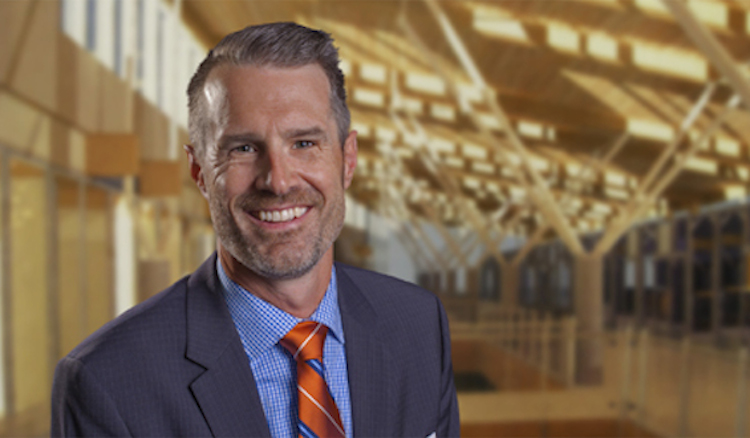Neil Fassina, former provost and academic vice-president of the Northern Alberta Institute of Technology, started work in his new role as president of Athabasca University this week.
The first major item on the new president’s agenda? Well, it probably should be figuring out what to do about the Athabasca University Students’ Union’s plan to take the university to court over retroactive changes to the AU nursing program’s regulations by the Faculty of Health Disciplines.
At the start of 2016, the AUSU began to raise concerns about the planned changes, as student union officials put it, “everywhere we can.” That included talking to interim AU president Peter MacKinnon, faculty Dean Margie Edwards, the interim academic vice-president, the student and academic services VP, the General Faculties Council and the Board of Governors.
The AUSU’s key concerns, which had been brought to the group’s attention by students in the program, were that the retroactive changes added extra courses to the program not included in students’ agreed-upon courses of studies, raised the grades needed for required courses to students already in the program, could banish students from the program who fail a nursing course twice and created a new “average-grade threshold” that had to be met to take additional required courses in the program.
The first three changes had the effect of requiring some students already in the program to take extra courses that weren’t part of the agreement when they started. The invention of the average-grade threshold by faculty administrators meant up to 20 per cent of the students in the program could be barred from finishing it unless they took additional courses to raise their average grade. Critics suggested there is evidence the measure was devised to get around the university’s grade point average policy.
“We aren’t convinced that a full review of these changes has taken place, despite our best efforts to relay the concerns from students,” the student union said in a blog post in July.
Last month, the AUSU informed departing interim president MacKinnon that if the university proceeds with the retroactive changes to the nursing program regulations, it will seek judicial review of the changes.
Since the situation remained unresolved at the end of September, the AUSU Council said in a report to members, it has agreed to move forward to judicial review if necessary, and voted to establish a fund to pay for advocacy measures against the planned retroactive changes.
“While there have been preliminary conversations with AU administration as a result of the most recent letter, no formal response has been received,” the student union’s report in September said. “We are hopeful that a judicial review will not be necessary to ensure fair treatment of students, but are prepared to initiate one if needed.”
“It is our position that AU must uphold the agreed upon program plan that each student received at the time of their enrollment,” the report concluded, adding that this “is consistent with statements made on the AU website. …”
The changes appear to have their roots in the problems experienced throughout Canada with the NCLEX, a U.S.-based licensing exam that Canadian registered Nursing students are now required to pass to obtain their professional registration.
As soon as the American designed test was adopted by Canadian RNs’ regulatory colleges, pass rates plummeted in many parts of Canada, often from about 90 per cent to about 70 per cent.
The Canadian Federation of Nurses Unions assailed the exam as inappropriate for Canadian nurses (for example, it uses imperial instead of metric measurements), expensive to rewrite and used mainly because it can be written and marked electronically, while the old Canadian test was written on paper.
Critics at AU say the faculty has presented no evidence its program changes will result in better NCLEX pass rates for Athabasca nursing students. Some in the university community suggest the real agenda behind the changes is to reduce student numbers in the program.
Regardless, the critics suggest these seemingly arbitrary changes are more evidence a house cleaning is needed among AU senior administrators — something the new president may or may not be willing to contemplate.
With Fassina now on the job, one would think, this should be near the top of his must-do list.
No one said it was going to be easy to run the financially troubled distance education university, which seems to have been in a perpetual state of crisis for several years now.
How the new president handles this crisis will be a useful barometer of his future management style.
Donald Trump, Unifier of America!
I have noticed a lot of recent commentary in the United States, and by Canadian observers of U.S. politics, about how Donald J. Trump is a divisive political figure.
This may be looking at the contribution of the Republican presidential candidate in the wrong way, however.
Trump intends to be divisive, of course. Indeed, he’s trying as hard as he can at this desperate point in his campaign to be as divisive as possible as a way to move the U.S. national conversation beyond his disgusting and reprehensible personal behaviour. But he seems to be having the opposite effect.
I mean, seriously, all sorts of Americans who would barely have talked to one another a year ago, even two months ago, are working together to give the odious candidate the bum’s rush. And if that means electing the Democratic presidential candidate, Hillary Clinton, so be it.
Astonishingly, this includes much of the Republican Party’s leadership, which has spend the past eight years obstructing almost anything departing President Barack Obama tried to do, no matter how worthwhile.
In other words, Trump is seen as so bad, he’’ bringing America together again! Who knew? Donald Trump, unifier.
This post also appears on David Climenhaga’s blog, AlbertaPolitics.ca.
Like this article? rabble is reader-supported journalism. Chip in to keep stories like these coming.




